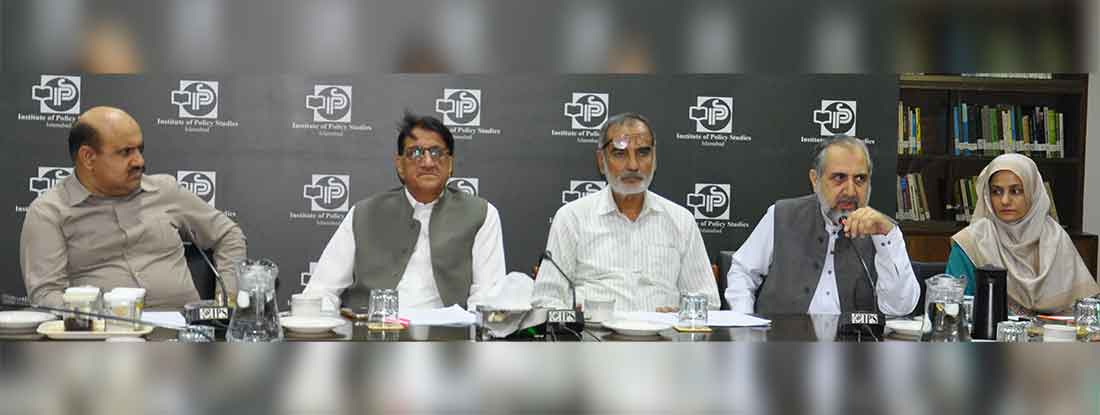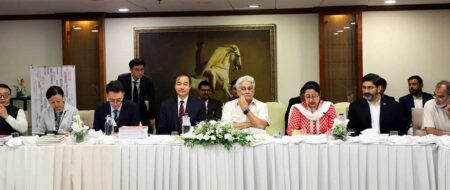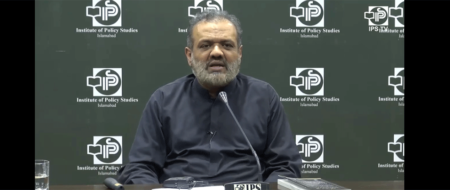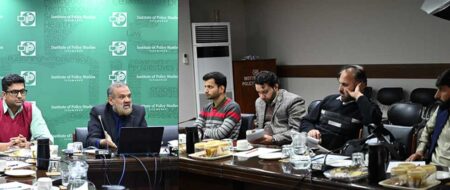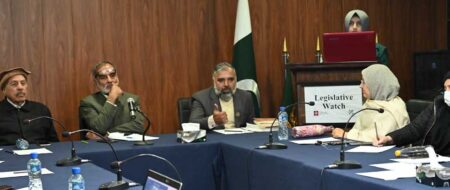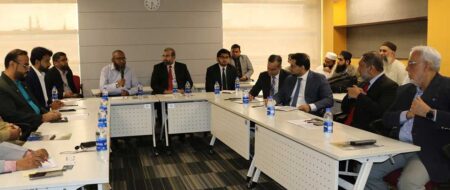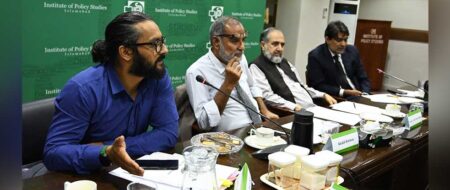AJ&K’s draft 15th constitutional amendment termed harmful for Kashmir cause
Pakistan stands firm by its Kashmiri brethren in their struggle for freedom and fight for their right of self-determination. It however needs to remain careful in its approach towards the cause, keeping in mind that primarily this has always been a war of liberation for Kashmir and the status of Azad Jammu & Kashmir (AJK) is that of its basecamp. The recently proposed 15th amendment in the AJ&K constitution in contrast appears to deviate from this consideration substantially, resulting in creating uncertainty and perplexity within AJ&K regarding the rationale behind this proposition.
These notions were reflected during the 19th meeting of IPS’ Working Group on Kashmir (IPS-WGK), which was held on September 8, 2022 to critically analyze and discuss different aspects of the proposed amendment, its background, objectives as well as implications.
The in-camera meeting based on Chatham House Rule was chaired by Chairman IPS Khalid Rahman whilst a prefatory presentation on the topic was delivered by Dr Idrees Abbasi, former secretary law, AJ&K. The other speakers partaking the interactive discussion included, among others, Saleem Bismil, former secretary, AJ&K, Aijaz Hussain Lone, secretary, Jammu and Kashmir Liberation Cell (JKLC), Ambassador (r) Syed Abrar Hussain, vice chairman, IPS, Ambassador (r) Ayaz Wazir, Advocate Nasir Qadri, director, Legal Forum for Kashmir (LFK), Sheikh Abdul Mateen, general secretary, All Parties Hurriyat Conference (APHC), Farzana Yaqoob, former minister, AJ&K and general secretary, IPS-WGK, Amanullah Khan, former president, RCCI, Mahmood Ahmad, eminent Kashmiri educationist, Dr Shahzad Iqbal Sham, senior research fellow at IPS, Aniq-ur-Rahman Saifi, president, Jammu & Kashmir Lawyers’ Association, Sabur Ali Sayyid, research associate, whereas the discussion was moderated by IPS’ GM Operations Naufil Shahrukh.
Summing up the session’s proceedings at the conclusion, Khalid Rahman stressed that the overall approach of Pakistan and its leadership regarding Kashmir must be proactive, while remaining careful in the rationale, its portrayal, and the framing and manifestation of narratives. At the same time, there is a need to renew our national narrative and focus on the war of liberation, in which Pakistan is an equal stakeholder like the people of Kashmir.
He further said that the government of Pakistan must not create confusion in the minds of Kashmiri people with unfounded legislative moves like 15th constitutional amendment that questions the rationale of Pakistan and its support to the cause of Kashmir freedom.
There is a need to protect and build on the strengths of the Kashmir freedom struggle, the fundamental strength of which is the UN resolutions providing the freedom movement with legitimacy, justification, and resilience. Another strength is the unwillingness of the Kashmiri people, on both sides of the LOC, to live with India. The unfluctuating consensus in Pakistan for this cause adds solidity to it, he added.
On the governmental level, Pakistan should address all menaces and their manifestations that serve to create confusion, disappointment, and grievances among the people of AJK like poor governance, corruption, lack of inclusivity, and internal crisis. In addition to reinforcing these strengths at the governmental level in policymaking and legislation, there is also a responsibility that falls on informed people and individuals to educate people, create awareness, and be vocal about the freedom movement as the voice of oppressed Kashmiris, he emphasized.


